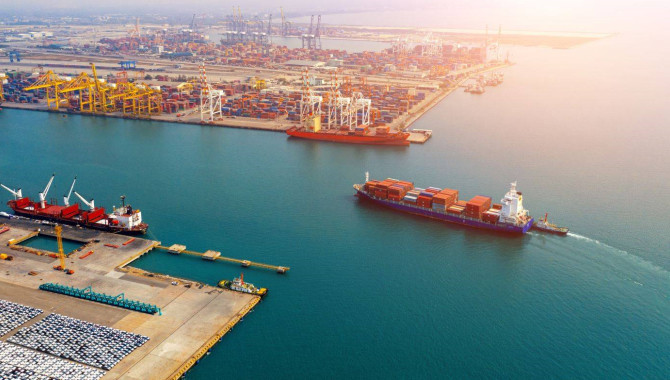
China's marine fuel futures contract that debuts on Monday on the Shanghai International Energy Exchange (INE) is likely to attract strong interest, despite weakened ship fuel demand amid the coronavirus pandemic, industry participants said.
The new low-sulphur fuel oil (LSFO) contract features marine fuel meeting stricter international emissions rules and is the latest commodity futures product - and second oil contract after Shanghai crude - open to foreign investment.
With few competitors, the contract stands a fair chance to grow into an Asian benchmark for shipping fuel, said traders and brokers, especially as about 20 Chinese refineries are freshly equipped to produce the low-sulphur fuel.
The contract could also further Beijing's ambition to build a bunkering hub in eastern China's Zhoushan port to challenge Singapore for the multi-billion dollar shipping fuel market.
"The listing is hugely attractive for physical enterprises, institutional investors and retail investors," said Xu Lei, a manager at Xiandai Resource Co, an eastern China trading company planning to trade the contract. Senior managers at state refiners and global trading firms told Reuters they are also keen to trade the contract and will monitor the market from Monday.
The exchange will pick about a dozen financial investors as market makers to boost initial liquidity, said INE officials. "We hope to provide the market a better tool to hedge risks as the global shipping industry transforms from high to low-sulphur fuel and satisfy the need for an Asian marine fuel benchmark," said one INE executive.
The INE sources declined to be named because they are not authorized to speak to the media. China removed a consumption tax on fuel oil this year and issued its first-ever supply quotas for 10 million tonnes of the new 0.5% sulphur marine fuel, earlier relying on imports from Singapore for its bonded bunkering market of about 12 million tonnes a year.
Compared to Shanghai crude, the LSFO contract has a more diversified investor base that includes traders and bunker operators, on top of the mostly state refiners and financial investors that dominate the crude contract. China also has a high-sulphur fuel oil contract for domestic trade, listed on the Shanghai Futures Exchange. It has recorded healthy volumes the past two years and will continue to trade, INE officials said, although its physical market has shrunk with the change of shipping fuel emissions rules.
RETAIL INVESTORS, BUNKER SUPPLIERS
With a lower threshold for opening an account at 100,000 yuan ($14,100) versus 500,000 yuan for crude oil, the LSFO contract could draw more retail investors.
"With the tax waiver, domestic refinery production has become the main force that will give us pricing advantage and trading volumes," said Yang Jiaming, an analyst at CITIC Futures, adding that the contract's volumes could top Singapore's over-the-counter LSFO swaps. China has 14 licensed bonded bunker suppliers, four of whom have said they will trade the LSFO contract.
"We'll be closely monitoring the contract and will jump in once arbitrage opportunities between Singapore and North Asia emerge," said a Beijing-based executive with a global trader.
The contract faces challenges such as limited warehouse space, an issue that squeezed deliveries against the INE crude contract in April. INE also has stricter product specifications - such as for viscosity and density - than those prevailing in Singapore trade, and this may hamper arbitrage deliveries, traders said. INE did not immediately respond to requests for comment about these market concerns.
Source:Marine Link
The opinions expressed herein are the author's and not necessarily those of The Xinde Marine News.
Please Contact Us at:
media@xindemarine.com


 Ningbo Containerized Freight Index Weekly Commentar
Ningbo Containerized Freight Index Weekly Commentar  Ningbo Containerized Freight Index Weekly Commentar
Ningbo Containerized Freight Index Weekly Commentar  Ningbo Containerized Freight Index Weekly Commentar
Ningbo Containerized Freight Index Weekly Commentar  BIMCO Shipping Number of the Week: Bulker newbuildi
BIMCO Shipping Number of the Week: Bulker newbuildi  Ningbo Containerized Freight Index Weekly Commentar
Ningbo Containerized Freight Index Weekly Commentar  Ningbo Containerized Freight Index Weekly Commentar
Ningbo Containerized Freight Index Weekly Commentar